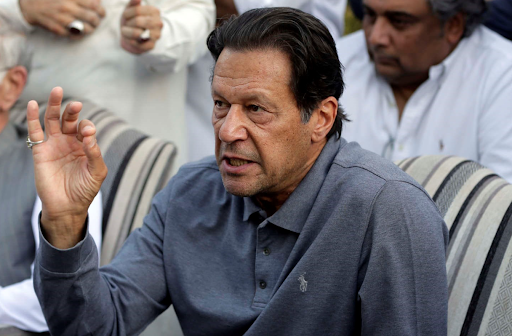Pakistani police on Tuesday arrested former Prime Minister Imran Khan in Islamabad on the background of his corruption trial, police said.
A large number of policemen appeared surrounding Imran Khan during his arrest, in an atmosphere of screams and chaos in a dramatic scene, where he was taken and placed in a military vehicle, under a great security alert.
His lawyer said in a video posted on Twitter that he was detained outside the Islamabad High Court, and was "severely injured" in the process.
In turn, the deputy head of the "Tehreek-e-Insaf" party, Fouad Chaudhry, announced that Khan had been kidnapped, and Chaudhry wrote in a tweet on "Twitter": "Former Prime Minister Imran Khan was kidnapped from the court building, and dozens of lawyers and ordinary people were tortured, and transferred Imran Khan to an unknown direction.
At the end of last month, a Pakistani court issued an arrest warrant against Khan on the grounds of the "threat" case against a female judge in a criminal court.
And the media reported that "the court issued its decision due to the repeated absence of Imran Khan from attending the trial session," noting that the decision came after the rejection of a petition submitted by Imran Khan's lawyer to exclude him from attending the trial, due to what he described as "threats on his life."
Khan's supporters confronted the police with stones and petrol bombs, after attempts to arrest him, last week, and 100 police officers were injured.
In March, the Islamabad High Court ruled that former Prime Minister Imran Khan would be granted protection from arrest as lawsuits against him increased.
The court's decision stipulated that Khan could not be detained for at least another week in seven separate cases related to clashes that erupted on March 18 between his supporters and police outside a court in Islamabad, where Khan was due to appear on corruption charges.
Khan was ousted by a no-confidence vote in parliament last April, and more than 100 lawsuits have since been filed against the 70-year-old opposition leader, including charges of terrorism, incitement to violence and graft.
Since his overthrow, Khan faces several legal measures, knowing that he is still very popular, and hopes to return to power in the legislative elections, which are scheduled to be held next October.


































No comments:
Write comments